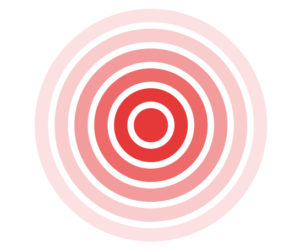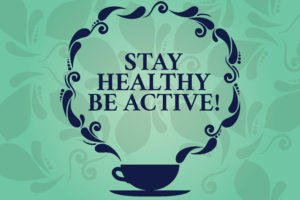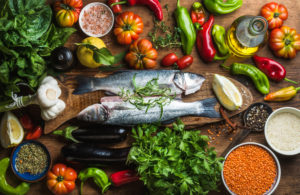Preparing For Winter
Did you know that the beneficiary contact with the Trust Health & Wellbeing team almost doubles over winter? Many people find that winter can be a tough time with short dark days having an impact on physical and mental health.
If you need mental health support the Trust can help you in a number of ways shown here.
There are some practical things you can do to help prepare yourself.
Please remember you are not alone and you can get in touch with us at any time.
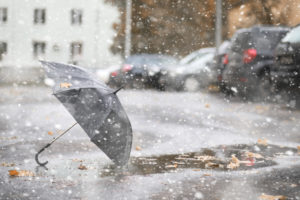
Look after your mental health
Feeling lonely and down can happen at any time of the year, but often feels worse over winter and Christmas as you are forced to spend more time indoors. Loneliness is an awful thing and can feel ten times worse at this time of year, especially if you also suffer from anxiety or depression.
Remember, you are not on your own, the Health &Wellbeing team at the Trust do care and will take the time to talk to you and understand.
We can help find you a counsellor and pay for your first sessions. Please contact the Trust on 01480 474074 or email to arrange this.
We can also help in other ways with access to talking therapies or one-to-one support on the links below. You can also connect with other beneficiaries to help combat loneliness at one of the Meetup groups that run regularly.
Talk Together

Talk together is a confidential, free telephone service for beneficiaries to help combat loneliness and isolation
Lift Up

Lift Up is a self-help service for people experiencing low mood, supported by a trained beneficiary
Join our Meetup groups
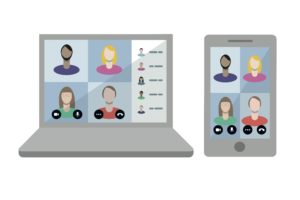
Connect with other beneficiaries from your own home for a chat over a cuppa or shared interests
Seasonal Affective Disorder (SAD)
Many people are specifically affected at this time of year by Seasonal Affective Disorder (SAD) and find they are lacking energy, sleeping a lot, overeating and feeling down.
It’s important to try to get out of the house when it is a bright day and to keep active as much as you can. Some people find investing in a special lightbox to help replace some of that lost daylight has a positive effect.
Find additional information on SAD and what you can do to help yourself from these websites:
Mind charity - Plan For More Difficult Times
Age UK - Seasonal Affective Disorder SAD
Don’t let Christmas get you down
 Christmas is a big part of winter – but it’s not always the jolly affair that it’s cracked up to be.
Christmas is a big part of winter – but it’s not always the jolly affair that it’s cracked up to be.
Just because it’s Christmas doesn’t mean that life stops and feelings of loneliness, powerlessness, or resentment often come to the surface when we’re forced into ‘being on our best behaviour’ and ‘having fun’ with friends and family. Financial worries or other triggers don’t help either.
If Christmas isn’t your favourite time of year, you can do quite a lot to make things easier for yourself if it all gets too much.
To get through Christmas…… : -
- Be kind to yourself - It’s OK to have sad, angry or disappointed feelings about Christmas and what it brings up for you.
- Don’t get into catastrophic thinking - Just because it’s like this now, doesn’t mean it always has to be. Think about what you are in control of, what could be different and what resources you have to make it happen.
- Look after yourself - Keep an eye on your alcohol consumption, try and eat healthy food, get enough sleep, sunlight, fresh air and exercise.
- Watch your triggers - Think about what may feel difficult for you from past experiences and devise ways to manage your response.
- Remember you’re not alone - It may look like others are having a great time with the media bombardment of happy, smiling families enjoying festivities, but many are coping with difficulties of their own. What you see is not always the whole story.
Stay Healthy
Keep well
Look after your health over the winter.
You can book your Covid-19 booster vaccine if you haven't already.
Make sure you have your yearly flu jab. It’s free if you have a disability. You can get a jab at your GP practice or local pharmacy.
If you don't like needles but would still like to have the treatment, talk to your GP to see if you could have the nasal spray instead (it's not usually given to over 50 year olds).
Keep up with your meds and order repeat prescriptions well in advance, especially if bad weather might make it hard for you to collect them. A lot of pharmacies offer a prescription delivery service.
Make sure you’ve got simple cold, flu and sore throat medicines handy at home – your pharmacist can give you advice on how to manage winter coughs and colds.
Norovirus, aka the ‘winter vomiting bug’ can cause vomiting, diarrhoea and stomach pain. It can be very unpleasant but will usually resolve itself in a few days. You’re infectious from the time you get symptoms until about 48 hours after the symptoms stop and it's best to stay at home to avoid infecting others.
The NHS have more information on the Norovirus
It can also be helpful to keep your vitamin intake up to fight off nasty bugs, especially vitamin D which isn’t as readily available naturally when there isn’t much sunlight. The medical advisers say that you should all be taking 10µg vitamin D daily from September to March. You can double the dose if you have chronic pain or asthma and can take all year round.
If you have COPD/asthma getting a cold or cough can make breathing issues much worse. In turn, this makes coping with your disability much harder. Make sure you have discussed what to do if you become unwell with your nurse or GP.
For our male beneficiaries, if you are worried or concerned about any aspect of your health please visit our Men's Health area for information and advice.
Eat (and drink) healthily
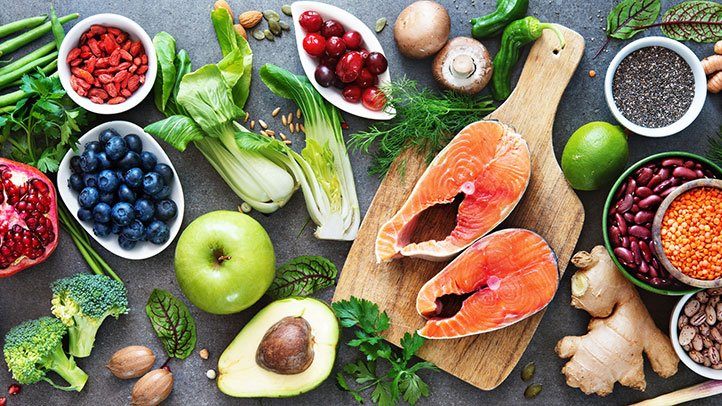
When it’s cold outside it’s really tempting to eat comfort food – lots of carbs and naughty pies and puddings, as well as a few extra drinks. We all over indulge at Christmas and beyond – which can pile on the pounds – but not eating enough can also affect your health, especially in winter, as it makes it more difficult to keep warm and fight infections.
Whilst a balanced diet is ideal, eating anything is better than eating nothing (even if it isn’t the most nutritious). Try and eat a balanced range of foods and aim to get your five a day. Frozen veg is just as good as fresh if there’s not much available.
Hot meals and drinks help to keep you warm, so try to eat at least one hot meal a day and keep those cuppas flowing. Having a hot drink before going to bed also helps keep you warm as you get off to sleep.
Alcohol can make you feel warm, but this is deceptive as it actually takes blood away from your core organs. So if you go out in the cold afterwards you can lose heat very quickly, which can be dangerous. A few drinks also makes it more likely that you will have a slip or a trip and a fall and can depress your mood.
If you think you may be drinking too much and would like some help to cut down, here are some tips from the NHS to help you cut down or contact us and we will help you find out more.
You can also visit our Alcohol and Health page for more information on alcohol limits and its effect on your long term health.
If you have overindulged take a look at some tips for eating more healthily to help you get back on track and lose some weight.
Get a good night's sleep
The quality and quantity of our sleep affects our general wellbeing both in the short and long term. During our recent sleep awareness week we published a wide range of information looking at things that you can do for yourself to help influence how well you sleep.
Take a look at our Sleep Awareness advice, which also includes links to information on Sleep Apnoea and Charlotte Black's blog on her experience of improving her sleep.
Stop smoking
25% of you smoke.
Many of you have told us it’s one of your pleasures in life. But have you thought about the effect of being breathless from lung damage and how it may make living with your disability even harder as you grow older?
It’s even worth stopping temporarily if at any point you need to have an operation as the surgery will be safer and your recovery faster if you stop temporarily before and for a few weeks afterwards.
Mostly though, stopping smoking is one of the best things you can do for your health and the effects start almost immediately.
Visit our Stop Smoking for Stoptober page to find help and support to quit smoking
Read more in the NHS article 'What happens when you quit smoking'
We know it’s not easy - smoking is thought to be as addictive as crack cocaine. But there are medications to help and also lots of support. If you want to know more about it contact your surgery for the stop smoking clinic or talk it through with one of our medical advisers. Then if you decide you wish to stop at any time, or even wish to temporarily stop for an operation, you will know how to give it the best chance and feel supported.
Managing Pain
We know that pain is a major problem for most beneficiaries and the cold weather can make it worse, as can staying indoors. Gentle stretches done regularly can really help reduce pain, as well as make you feel better about yourself, improving your emotional wellbeing.
Keep warm
Helen Shore shares some tips from beneficiaries on how they like to keep warm during the cold months.
You may also find this heated blanket useful.
Read our articles on pain, getting active and eating well to help you stay healthy this winter.
If you need further support
Please get in touch with us if you would like to discuss any of the issues raised above, by calling 01480 474074 or using the contact form on the link below.
